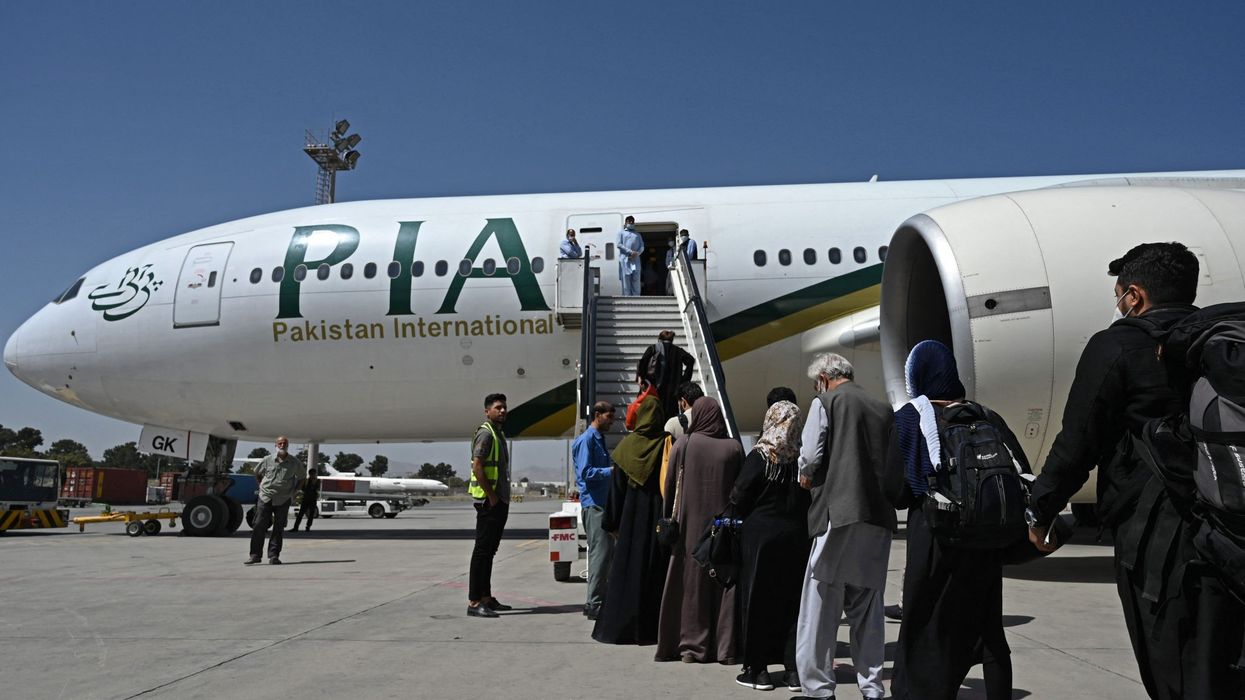Pakistan's national carrier now meets global safety standards, the country's aviation minister said Thursday, but the airline still needs authorities in Europe and the United States to lift a ban before it can resume flights to major Western destinations.
Pakistan International Airlines (PIA) was decertified by the world's civil aviation authority in 2020 after one of its Airbus A-320s crashed while landing at Karachi's Jinnah International Airport, killing all but two of the 99 passengers and crew.
Flight 8303 damaged its engines when the pilots attempted to land without the undercarriage lowered, and crashed into a crowded neighbourhood while circling for a second attempt.
The accident was attributed to pilot error as a result of the crew being out of action for months, having been grounded by the coronavirus epidemic.
The government investigation that followed discovered dozens of Pakistani pilots had faked their certifications or flying hours, prompting the International Civil Aviation Organization (ICAO) suspension.
On Thursday aviation minister Ghulam Sarwar Khan told a press conference the ICAO had now recertified the airline, showing a letter from the organisation confirming the pass.
"We addressed significant safety concerns," Khan said, adding: "We hope to resume our flight operations to Europe and the US by February or March this year."
He said a follow-up inquiry into pilot certifications was part of the clean-up process.
Some 262 licences were found to be "dubious", he said, most of which have now been cleared after further training and testing.
However, 50 pilots had been dismissed because of irregularities.
"There has been a lot of criticism on us during the last two years, but we improved our safety standards," Khan said.
He added that Pakistan had signed an agreement with British civil aviation authorities for its pilots to be tested and certified in the UK.
Until the 1970s PIA was considered a top regional carrier, but its reputation plummeted amid chronic mismanagement, frequent cancellations and financial woes.
It still operates some domestic and regional routes, but Khan said the airline now hoped to resume intercontinental flights and add new destinations.
A senior Pakistani pilot told AFP there was still a long way to go.
"No country in the world recognises licences issued by our civil aviation authority in view of the obsolete system of examinations," he said, asking not to be identified.
Pakistan has a chequered military and civilian aviation safety record, with frequent plane and helicopter crashes over the years.
In 2016, a PIA plane burst into flames after one of its two turboprop engines failed during a flight from the remote north to Islamabad, killing more than 40 people.












